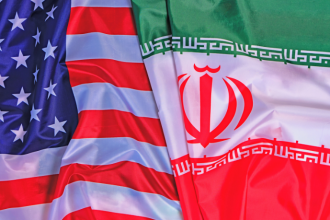Antônio Fernando Ribeiro Pereira, founder of Log Lab, analyzes that we live in an era where artificial intelligence (AI) is deeply integrated into the daily operations of organizations, influencing everything from operational processes to strategic decisions. In this context, corporate leadership faces a new challenge: how to balance the efficiency of machines with human sensitivity. The ability to make quick, data-driven decisions cannot overshadow ethical, empathetic, and contextual considerations.
How is AI Transforming Decision-Making?
Artificial intelligence enables predictive analytics, process automation, and decisions based on complex algorithms. This has led to significant gains in agility and productivity, especially in sectors like finance, healthcare, logistics, and human resources. However, the speed and accuracy with which AI operates can also create an illusion of infallibility, leading leaders to blindly trust machine recommendations without considering cultural, social, or human nuances.
Algorithms carry the biases of their developers and the data on which they were trained. Antônio Fernando Ribeiro Pereira explains that an automated system can, for example, reinforce inequalities or make unjust decisions if not supervised with critical awareness. Thus, leadership must be attentive to how these tools are used and what values are being incorporated into the logic of automated decisions.
What Does It Mean to Humanize an Automated Decision?
Humanizing an automated decision does not mean rejecting the use of technology, but rather incorporating ethical, empathetic, and social criteria into the decision-making process. It is the effort to ensure that decisions generated by algorithms consider the human impact they will have, promoting fairness, inclusion, and accountability. This requires leaders to be aware that data is not neutral and that technological choices should reflect the organization’s values.

In this context, the leader’s role is to be the link between the objectivity of AI and human subjectivity. This includes reviewing the results generated by systems, listening to those affected by these decisions, and adapting automated guidelines according to the context. Antônio Fernando Ribeiro Pereira reflects that humanizing also means creating spaces for dialogue about the limits of AI and encouraging diverse perspectives within the teams that develop and oversee these technologies.
What Skills Should a Leader Develop for This New Landscape?
Leading in the age of AI requires skills that go beyond technical expertise. It is essential to cultivate emotional intelligence, critical thinking, empathetic communication, and ethical sensitivity. The leader needs to understand how algorithms work but also know how to question their limitations and social implications. The focus should be on balanced decisions that combine data logic with care for people.
Moreover, it is crucial for the leader to foster a transparent organizational culture where the use of AI is understood by all. This includes providing training, promoting open discussions about the impacts of automation, and developing clear policies for data governance and artificial intelligence. Antônio Fernando Ribeiro Pereira emphasizes that effective leadership in this context inspires trust while encouraging shared responsibility in the use of technology.
Technology with Purpose, Leadership with Awareness
The advancement of artificial intelligence is inevitable and, in many ways, beneficial. However, it is up to leaders to ensure that these tools are used responsibly and sensitively. Humanizing automated decisions is not a brake on progress but an ethical direction that ensures technological development aligns with human values. Now more than ever, leadership must be an exercise in awareness, empathy, and purpose.
Author: Clodayre Daine









